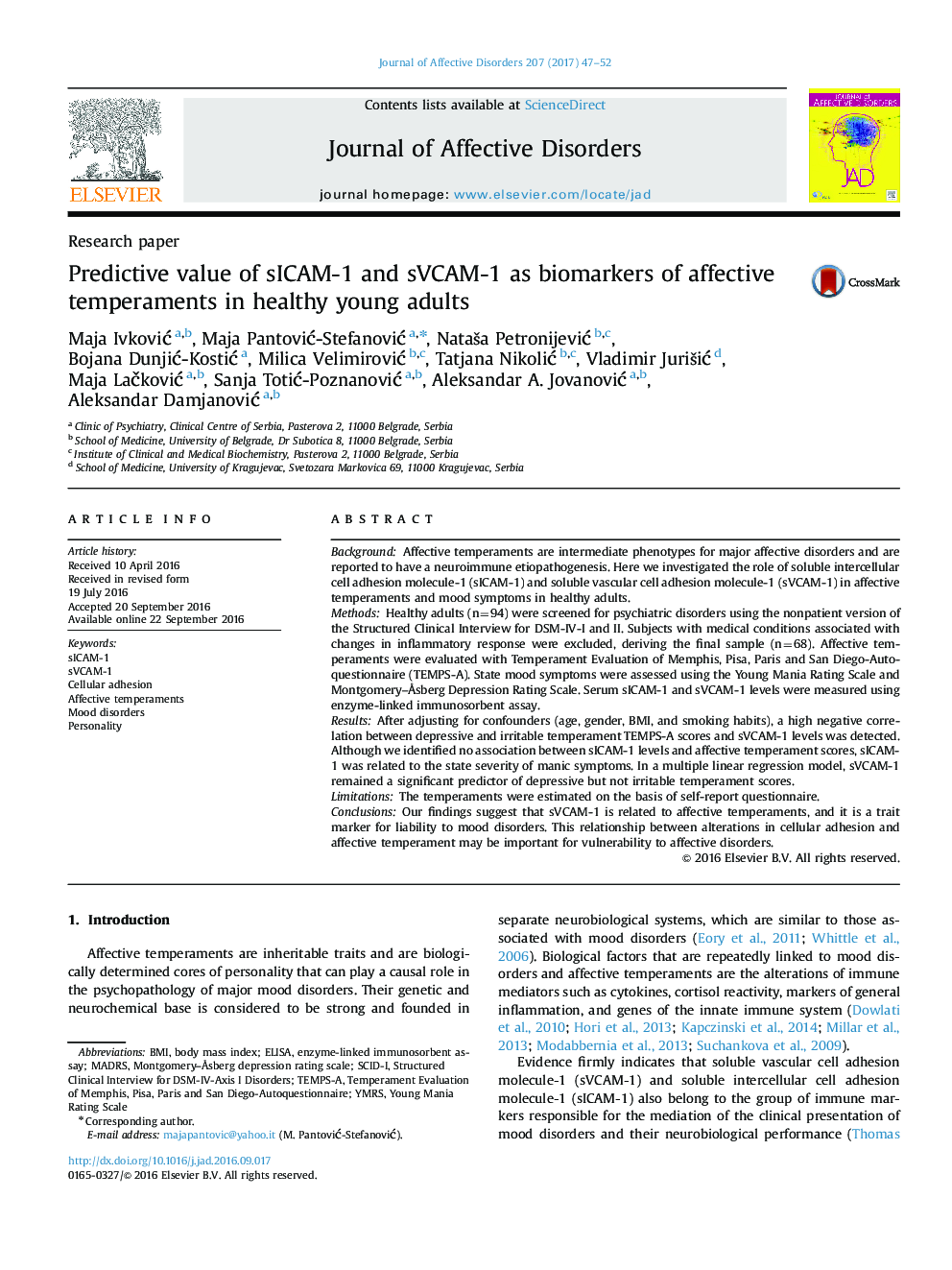| Article ID | Journal | Published Year | Pages | File Type |
|---|---|---|---|---|
| 6229463 | Journal of Affective Disorders | 2017 | 6 Pages |
â¢sVCAM-1 is related to depressive affective temperament.â¢sICAM-1 levels are related to state mood symptoms.â¢Adhesion molecules may be implicated in vulnerability to affective disorders.
BackgroundAffective temperaments are intermediate phenotypes for major affective disorders and are reported to have a neuroimmune etiopathogenesis. Here we investigated the role of soluble intercellular cell adhesion molecule-1 (sICAM-1) and soluble vascular cell adhesion molecule-1 (sVCAM-1) in affective temperaments and mood symptoms in healthy adults.MethodsHealthy adults (n=94) were screened for psychiatric disorders using the nonpatient version of the Structured Clinical Interview for DSM-IV-I and II. Subjects with medical conditions associated with changes in inflammatory response were excluded, deriving the final sample (n=68). Affective temperaments were evaluated with Temperament Evaluation of Memphis, Pisa, Paris and San Diego-Autoquestionnaire (TEMPS-A). State mood symptoms were assessed using the Young Mania Rating Scale and Montgomery-Ã sberg Depression Rating Scale. Serum sICAM-1 and sVCAM-1 levels were measured using enzyme-linked immunosorbent assay.ResultsAfter adjusting for confounders (age, gender, BMI, and smoking habits), a high negative correlation between depressive and irritable temperament TEMPS-A scores and sVCAM-1 levels was detected. Although we identified no association between sICAM-1 levels and affective temperament scores, sICAM-1 was related to the state severity of manic symptoms. In a multiple linear regression model, sVCAM-1 remained a significant predictor of depressive but not irritable temperament scores.LimitationsThe temperaments were estimated on the basis of self-report questionnaire.ConclusionsOur findings suggest that sVCAM-1 is related to affective temperaments, and it is a trait marker for liability to mood disorders. This relationship between alterations in cellular adhesion and affective temperament may be important for vulnerability to affective disorders.
